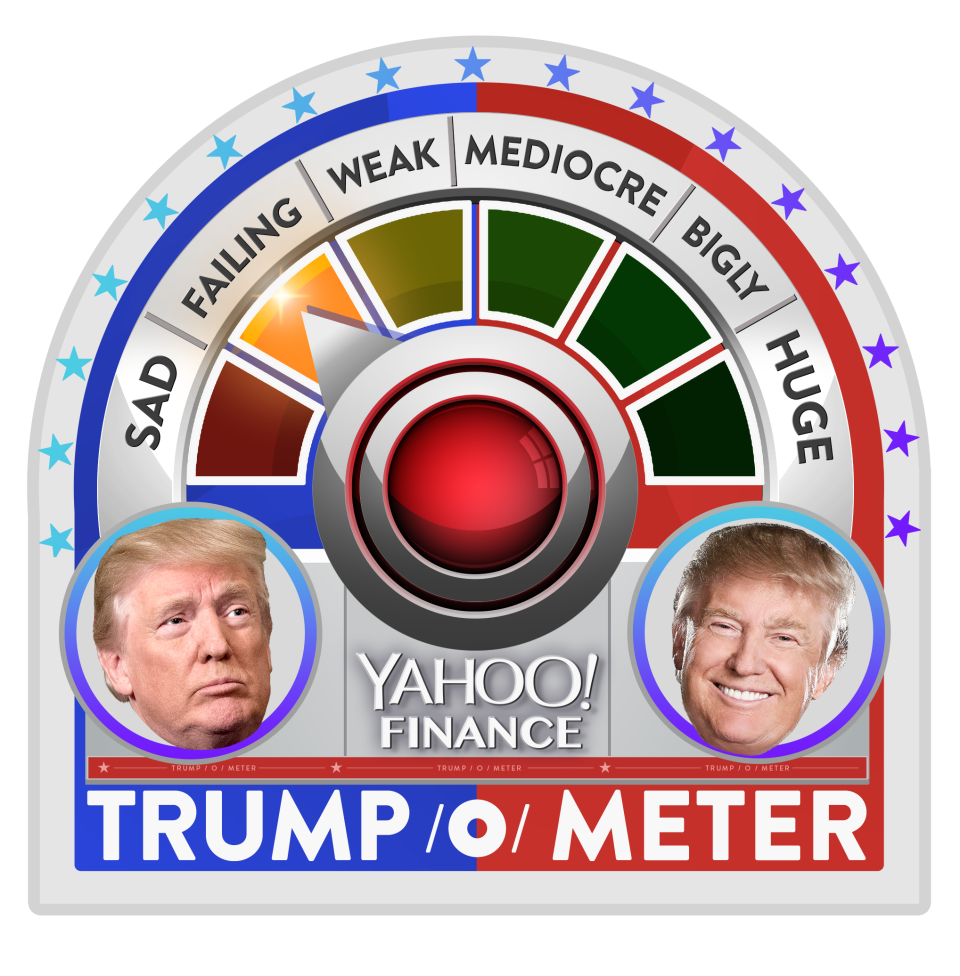This week in Trumponomics: The scapegoating is on
It’s bad. Businesses are shedding jobs like never before, with 3.3 million Americans filing for unemployment insurance this week. That’s more than four times higher than the worst week for unemployment claims in modern history, 1982.
A recession has clearly arrived, with GDP likely to plunge in the second quarter. With coronavirus cases surging nationwide, more states and cities are locking down restaurants and other businesses. The best-case scenario might be a hard shutdown of the economy for two months, with a possible recovery by late summer if public health authorities can stop the spread of the virus. Worse-case scenarios involve waves of contamination and a long downturn that’s the worst since the 1930s.
President Trump has had a lot to say about the virus and its toll on the economy, and true to form, he’s found a lot of people to blame: China, the Democrats, the media and even Ford and General Motors. He also seems to be doing some preemptive scapegoating by calling for the economy to “reopen” on Easter, April 12, even though he must know that’s impossible. That looks like a tactic allowing Trump to say, hey, if it were up to me, I’d send everybody to work, but these fussbudgety medical experts won’t let me.
Unimpressive and unpresidential. The Trump economy looks so bad this week that it should be the third straight week with a SAD reading—the worst—on the Trump-o-meter. But Congress provided some hope with its $2 trillion stimulus plan, and stocks staged a sharp, if half-hearted, rally. So this week’s Trump-o-meter reads FAILING, the second-lowest score.

Some Americans may feel this is the wrong time to criticize the president or call attention to things he should have done better in the early days of the coronavirus outbreak. Why not wait till later, when the danger has passed? Isn’t this similar to a wartime situation, when the nation needs to pull together to defeat a common enemy?
It may be, but Trump needs to be the first to attempt to unify the country, because he’s the president. And he’s not. He confuses everybody by saying he’s using the Defense Production Act to speed production of badly needed medical equipment—then he doesn’t do it. He insists he’s a “wartime president” but then says it’s time for everything to go back to normal. He takes the bait every time a reporter or political foe tries to get under his skin, instead of showing that he has a higher purpose.
The nation should get behind the president when it’s necessary to win a war. But what if we’re losing the war? Should the nation show blind fidelity to a commander-in-chief as he leads the nation toward disaster, in a way everyone can see?
We’re not losing the coronavirus war, yet. But we’re not winning, either. The United States now has the most confirmed cases in the world, and the tally is certainly going much higher. In a couple of weeks, hospitals in the New York City area could be facing the peak of the infection, and possibly running out of beds and equipment to treat everybody. Cities like New Orleans, Atlanta, Chicago, Detroit, Los Angeles and others could be right behind. The rate of testing in the United States has picked up, but it’s still behind South Korea, which seems to have corralled the spread of the virus.
Trump’s propagandish daily briefings on the coronavirus have drawn comparisons to the “Five O’Clock Follies” during the Vietnam War, when military commanders would recite statistics true and false that were supposed to make it sound like America was winning. America lost the Vietnam War, one of the most shameful episodes in the nation’s history. Victory isn’t inevitable just because we’re America. If the coronavirus is, in reality, a war, we look outgunned and underled at the moment.
Rick Newman is the author of four books, including “Rebounders: How Winners Pivot from Setback to Success.” Follow him on Twitter: @rickjnewman. Confidential tip line: rickjnewman@yahoo.com. Encrypted communication available. Click here to get Rick’s stories by email.
Read more:
Follow Yahoo Finance on Twitter, Facebook, Instagram, Flipboard, SmartNews, LinkedIn, YouTube, and reddit.


